 NewsAboutConcertsPublicationsPodcastsProductionsDatabaseBack toResearchCallsArchive
NewsAboutConcertsPublicationsPodcastsProductionsDatabaseBack toResearchCallsArchiveFriday, November 24, 2017 (16:00-19:30) & Saturday, November 25, 2017 (9:30-19:00). MICA, Stiftgasse 29, 1070 Vienna, Austria
![]()
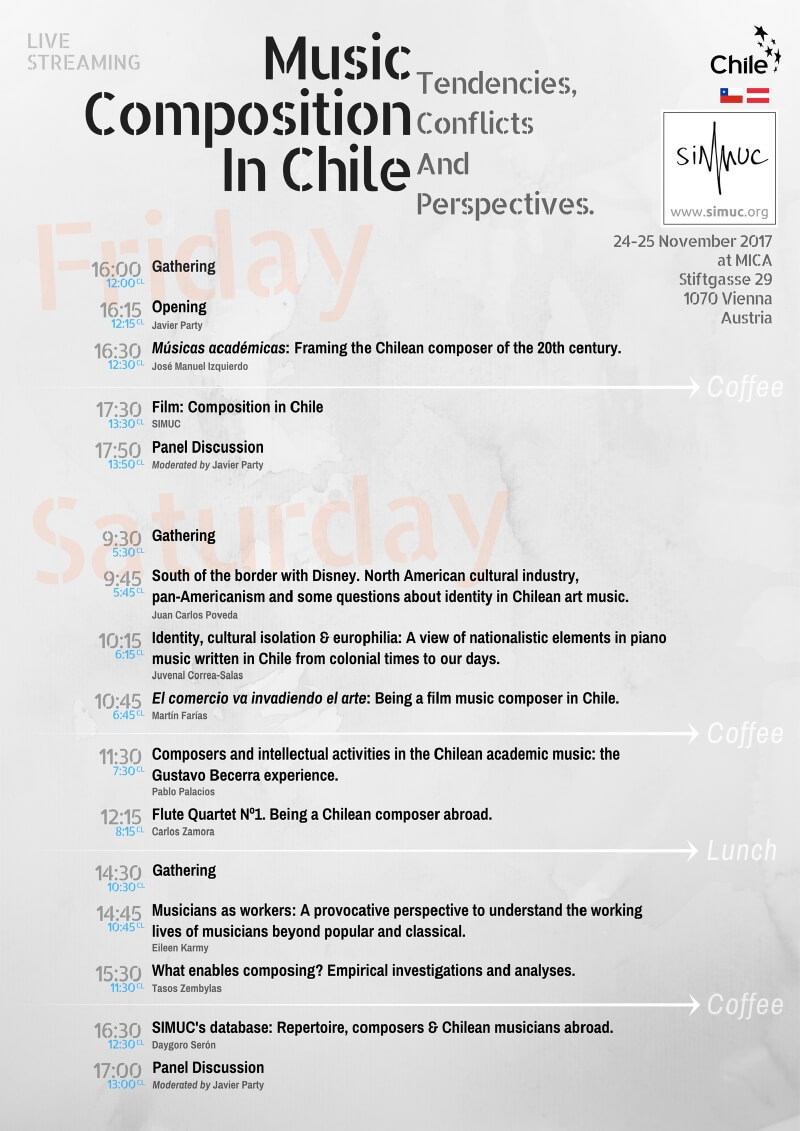
Music Composition in Chile
Tendencies, Conflicts And Perspectives
Music composition in Chile was during most of the 20th century an academic practice. Most Chilean composers officially considered as such were and have been university professors, and it is common in Chile to define contemporary classical music simply as “academic music”. However, since the return to democracy three decades ago, new scenes and movements have reshaped this panorama: music composition is taught in more places, state funding has supported music composition beyond academia, and new generations have been trying to escape old practices in different ways. An important number of Chilean composers have also studied or work abroad, mainly in Europe. In the year 2016, the election of Vicente Bianchi as the first non-academic composer recipient of the National Prize for Music, created an important crisis about who is or can be a composer, and how music composition has been defined in the last century.
This first SIMUC musicology conference takes this “crisis” of local music composition, and the idea and practice of the composer in Chile and of Chilean music, to discuss the discipline, creators, relations with audiences and the space institutions occupy today in the world of music creation. Some of the questions we want to explore in the conference are: Who has written music in Chile, and why? How has music composition been defined in Chile, and by whom? Who is considered a composer in Chile? What could be considered Chilean in the written music tradition of Chile, and what would be a Chilean music composition? Is there an identity of Chilean music composition? How have these problems changed in time?
We have invited three Chilean musicologists: José Manuel Izquierdo (Chile), Pablo Palacios (Chile/Spain) and Eileen Karmy (Chile/UK), Chilean composer Carlos Zamora (Chile/UK) and Austrian cultural scientist, Tasos Zembylas (Cyprus/Austria). Other two Chilean scholars were selected through our call to present at the conference: Juan Carlos Poveda (Chile) and Martín Farías (Chile/UK). A piece by Carlos Zamora, the premiere of a SIMUC-Film about the Chilean music scene and a presentation of SIMUC's database will round the conference.
This conference is possible thanks to ChileGlobal and their financial support.
Conference Program (PDF)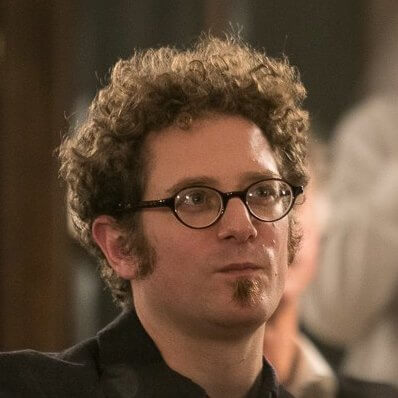 Javier Party
Composer
[email protected]
Javier Party is a Chilean composer. He lives and works in Vienna, Austria. He studied composition in Chile and Germany. His music has been performed worldwide. He is the president of the International Society for Chilean Music (SIMUC).
Javier Party
Composer
[email protected]
Javier Party is a Chilean composer. He lives and works in Vienna, Austria. He studied composition in Chile and Germany. His music has been performed worldwide. He is the president of the International Society for Chilean Music (SIMUC).
The president of the International Society for Chilean Music (SIMUC), composer Javier Party opens the Conference and points out the importance of connecting Chilean musicians in Chile and abroad. With concerts that are dedicated to Chilean repertoire composers and performers join to represent Chilean music together. In this conference the SIMUC wanted to have Chilean musicologists talking about Chilean music.
The fact that the conference was done in English and that it was streamed live allowed us to have an international audience and bring some knowledge about the Chilean music culture to different parts of the world.

Javier Party
Composer
Javier Party is a Chilean composer. He lives and works in Vienna, Austria. He studied composition in Chile and Germany. His music has been performed worldwide. He is the president of the International Society for Chilean Music (SIMUC).
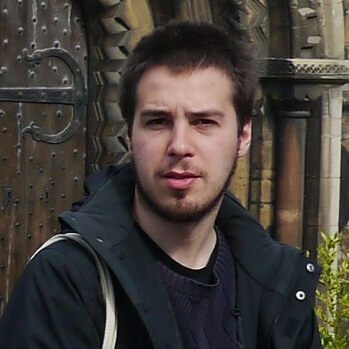 José Manuel Izquierdo
Musicologist
[email protected]
José Manuel Izquierdo studied musicology in Chile and graduated with a PhD in Music from the University of Cambridge as a Gates Cambridge Scholar. His work has been mostly on Chilean and Andean composers from the 19th and 20th centuries, and is currently working on transnational opera in the region. For his research, which has been published in various journals and in the form of three books, he has received several awards including the Otto Mayer Serra Prize, the Ruspoli Prize and also the Tesi Rossiniane Prize for his PhD dissertation. He currently works at the Universidad Católica de Chile.
José Manuel Izquierdo
Musicologist
[email protected]
José Manuel Izquierdo studied musicology in Chile and graduated with a PhD in Music from the University of Cambridge as a Gates Cambridge Scholar. His work has been mostly on Chilean and Andean composers from the 19th and 20th centuries, and is currently working on transnational opera in the region. For his research, which has been published in various journals and in the form of three books, he has received several awards including the Otto Mayer Serra Prize, the Ruspoli Prize and also the Tesi Rossiniane Prize for his PhD dissertation. He currently works at the Universidad Católica de Chile.
In Chile, most people tend to describe “classical music” as “academic music”, música académica, a rather adept symbol of the construction of the composer -and musical composition- in terms of an academic activity. For most of the 20th century, that was indeed the case for Chilean composers, when musical composition was overwhelmingly dominated by the Universidad de Chile, with very few and rare exceptions. While Chile had a conservatoire since 1850 -the second oldest in Latin America-, in which composition was also being taught at least since the 1880s, the conservatoire was scrapped in the 1920s in favour of a new model of musical institution, sustained by a university. Central to the debate was the question of who is a composer, and what is a “composition”, creating a shift from a perspective of the composer as craftsmen to that of artist, changing local aesthetics and aesthetics assumptions. A new law in 1941 finally consecrated to the Universidad de Chile the role of control over artistic musical life in Chile, further cementing a specific idea of “composer” through new institutions: the national symphonic orchestra, a musicological journal, festivals for new music, a national prize for composers with a lifelong government-funded pension.
Looking back, it is inevitable to see that this framework has shaped Chilean musical composition and what a composer is -or isn’t-, even until our own days. Many composers of that period are still alive, and overwhelmingly -almost solely- the national prize for music has been given to composers from university circles. In this paper, however, I want to look critically not only at how that framework operated, what models of composer of composition it created or sustained, and also at the musicians who tried to break with that model in different ways. Who was considered a composer, and who was trying to reframe that question? Using different sources, I will trace that question through several decades, including the extension and articulation of the model during Pinochet’s dictatorship, and its progressive collapse since the 1990s under the weight of new mediums, voices, cultural institutions, scenes and opportunities for funding.

José Manuel Izquierdo
Musicologist
José Manuel Izquierdo studied musicology in Chile and graduated with a PhD in Music from the University of Cambridge as a Gates Cambridge Scholar. His work has been mostly on Chilean and Andean composers from the 19th and 20th centuries, and is currently working on transnational opera in the region. For his research, which has been published in various journals and in the form of three books, he has received several awards including the Otto Mayer Serra Prize, the Ruspoli Prize and also the Tesi Rossiniane Prize for his PhD dissertation. He currently works at the Universidad Católica de Chile.
 SIMUC
[email protected]
Produced by the International Society for Chilean Music (SIMUC).
SIMUC
[email protected]
Produced by the International Society for Chilean Music (SIMUC).The SIMUC talked to Chilean musicians in Santiago. We asked them what does it mean to be a composer in Chile and when could a piece of music be considered to be Chilean?
Musicians on the film: Aliocha Solovera (composer), Luis Orlandini (guitarist), Fernanda Ortega (pianist), Sebastián Errázuriz (composer, conductor), Álvaro Gallegos (journalist, researcher, composer), Francisca Reyes (cellist), Andrés Maupoint (composer), Francisco Silva (composer), Tomás Brantmayer (composer), Nicolás Carrasco (composer, researcher, improviser) and Antonio Carvallo (composer).

SIMUC
Produced by the International Society for Chilean Music (SIMUC).
Directed by Javier Party.
Filmed by Metáfora Films.
With the support of ChileGlobal.
 SIMUC
[email protected]
SIMUC's International Musicology Conference.
SIMUC
[email protected]
SIMUC's International Musicology Conference.
Composition in Chile: Tendencies, conflicts and perspectives. With José Manuel Izquierdo, Eileen Karmy, Pablo Palacios and Carlos Zamora. Moderated by Javier Party.
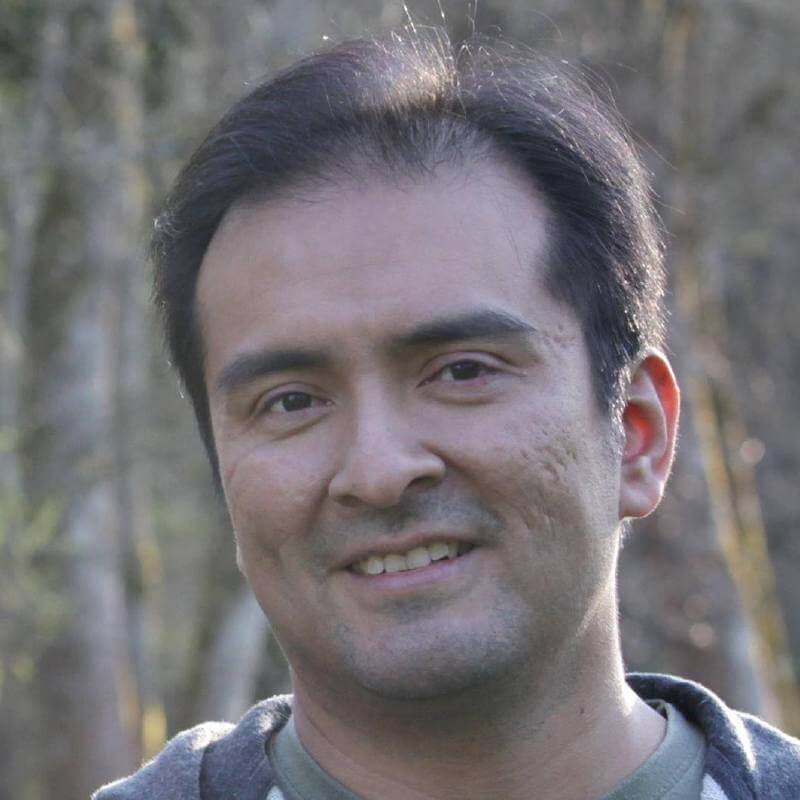 Juan Carlos Poveda
Musicologist
[email protected]
Academic of the Instituto de Música of the Universidad Alberto Hurtado. In addition to his degree in Music Education, he has studies in Guitar at the Facultad de Artes of the Universidad de Chile, the institution where he also obtained a Master's Degree in Arts with a major in Musicology. Thanks to the grant awarded by the Comisión Nacional de investigación Científica y Tecnológica (CONICYT), he is currently developing his thesis to obtain the degree of Doctor in Latin American Studies.
Juan Carlos Poveda
Musicologist
[email protected]
Academic of the Instituto de Música of the Universidad Alberto Hurtado. In addition to his degree in Music Education, he has studies in Guitar at the Facultad de Artes of the Universidad de Chile, the institution where he also obtained a Master's Degree in Arts with a major in Musicology. Thanks to the grant awarded by the Comisión Nacional de investigación Científica y Tecnológica (CONICYT), he is currently developing his thesis to obtain the degree of Doctor in Latin American Studies.
In 1941, in the context of a Pan Americanist project and the production of World War II-era propaganda, Walt Disney and a professional team of 18 people – including one composer- made a trip across Latin America for two months, in order to learn about different cultural aspects of Latin American countries. The result of this experience was the documentary South of the Border and the animated film Saludos Amigos. Chile was one stop on this journey, and the official person to talk about Chilean Music with John C. Rose, Disney’s manager, was the composer Domingo Santa Cruz, then Dean of Facultad de Artes of the Universidad de Chile, and a key figure in the musical institutionality of the country. Only a few documents give us specific information about this conversation. However, just imagining this scene leads to some questions: What concept of “Chilean music” was offered to the Disney project by Santa Cruz, who acted like the “official musical voice” of the country? What aspects of a supposed Chilean music style could have been interesting for Disney and the North American culture industry?
Articulating with the focus of this Congress, this presentation questions and problematizes what might have been said about the concept of Chilean music in the forties, and, most importantly, how those discourses continue to circulate in music schools.

Juan Carlos Poveda
Musicologist
Academic of the Instituto de Música of the Universidad Alberto Hurtado. In addition to his degree in Music Education, he has studies in Guitar at the Facultad de Artes of the Universidad de Chile, the institution where he also obtained a Master's Degree in Arts with a major in Musicology. Thanks to the grant awarded by the Comisión Nacional de investigación Científica y Tecnológica (CONICYT), he is currently developing his thesis to obtain the degree of Doctor in Latin American Studies.
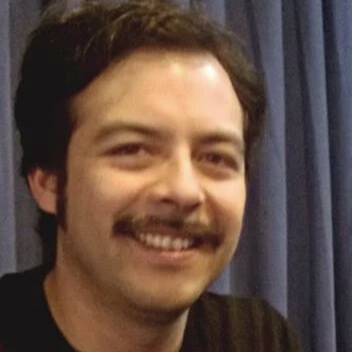 Martín Farías
Musicologist
[email protected]
Martin Farias is a PhD candidate in Music at the University of Edinburgh, Scotland. His research interests include film music, stage music and politics. His PhD focuses on the development of film music in Chile from the beginning of the sound era in the late 1930s until the coup d’état in 1973 particularly in its relations with aspects of identity and politics.
Martín Farías
Musicologist
[email protected]
Martin Farias is a PhD candidate in Music at the University of Edinburgh, Scotland. His research interests include film music, stage music and politics. His PhD focuses on the development of film music in Chile from the beginning of the sound era in the late 1930s until the coup d’état in 1973 particularly in its relations with aspects of identity and politics.
Despite the growing interest in the study of film music during the last decades, little attention has been paid to film music in Chile and particularly to the role of the composer in the Chilean film production. Owing to its position between art and work/industry, the figure of the film composer has often been hidden, undervalued and despised. In this paper, I explore key aspects in the development of this figure in Chile, considering the tension and negotiations between composers and the film production during the first decades of sound cinema (1940s to 1960s). Regarding specific debates surrounding the works of George Andreani, Acario Cotapos and Gustavo Becerra, I argue that conflicts between popular and academic music milieus, in addition to the hegemony of Hollywood industry and the economic constraints of the national film production shaped the figure of the film music composer in Chile.

Martín Farías
Musicologist
Martin Farias is a PhD candidate in Music at the University of Edinburgh, Scotland. His research interests include film music, stage music and politics. His PhD focuses on the development of film music in Chile from the beginning of the sound era in the late 1930s until the coup d’état in 1973 particularly in its relations with aspects of identity and politics.
 SIMUC
[email protected]
Produced by the International Society for Chilean Music (SIMUC).
SIMUC
[email protected]
Produced by the International Society for Chilean Music (SIMUC).The SIMUC talked to Chilean musicians in Santiago. We asked them about the Chilean music scene, what they like and what could be improved.
Musicians on the film: Aliocha Solovera (composer), Luis Orlandini (guitarist), Fernanda Ortega (pianist), Sebastián Errázuriz (composer, conductor), Álvaro Gallegos (journalist, researcher, composer), Francisca Reyes (cellist), Andrés Maupoint (composer), Francisco Silva (composer), Tomás Brantmayer (composer), Nicolás Carrasco (composer, researcher, improviser) and Antonio Carvallo (composer).
Open discussion after the film:

SIMUC
Produced by the International Society for Chilean Music (SIMUC).
Directed by Javier Party.
Filmed by Metáfora Films.
With the support of ChileGlobal.
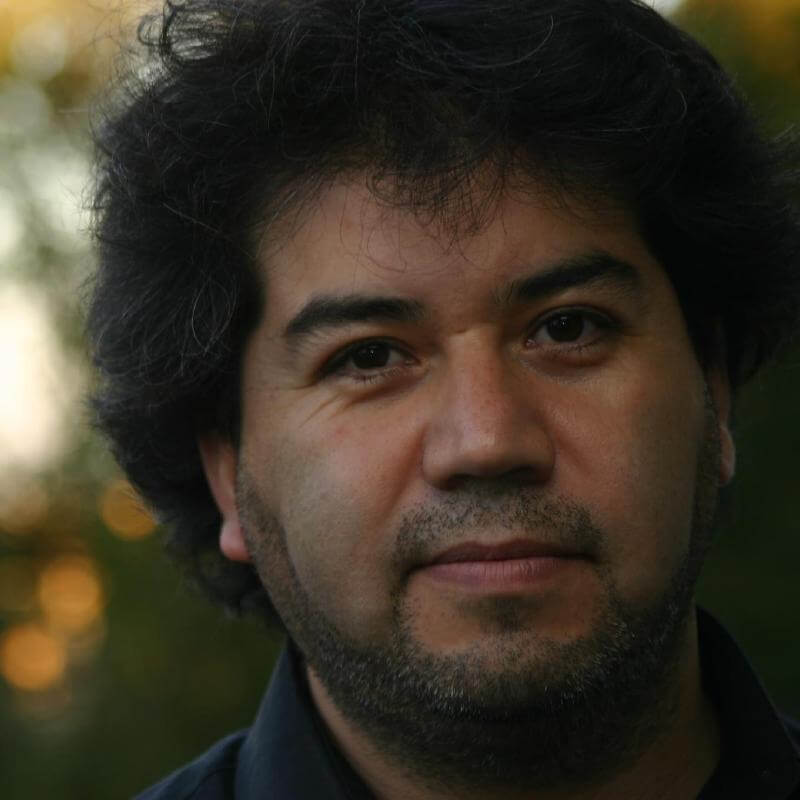 Pablo Palacios
Musicologist
[email protected]
Pablo Palacios Torres is an academic at the University of Valparaíso. His academic life transits between the concert guitar and musicology. He has performed contemporary Chilean pieces at festivals in different countries. He recently premiered and recorded the first Chilean double concerto for classical and electric guitar in Valparaíso. As a musicologist his work focuses on avant-garde academic music of the 20th century. His doctoral thesis is dedicated to the Chilean composer Gustavo Becerra-Schmidt. He has a degree in history and music, in concert guitar and a master in Latin American Musicology. He is currently a PhD candidate in Musicology at the University of Oviedo, Spain.
Pablo Palacios
Musicologist
[email protected]
Pablo Palacios Torres is an academic at the University of Valparaíso. His academic life transits between the concert guitar and musicology. He has performed contemporary Chilean pieces at festivals in different countries. He recently premiered and recorded the first Chilean double concerto for classical and electric guitar in Valparaíso. As a musicologist his work focuses on avant-garde academic music of the 20th century. His doctoral thesis is dedicated to the Chilean composer Gustavo Becerra-Schmidt. He has a degree in history and music, in concert guitar and a master in Latin American Musicology. He is currently a PhD candidate in Musicology at the University of Oviedo, Spain.
Since 1927 Chilean academic music has been developed in the Faculty of Arts of the University of Chile and other universities, the institutionalization of music generated an artistic, academic and bureaucratic role of the composers. The composer was the main character of the Chilean musical system, being responsible for creating diverse institutions that made possible the exercise of art music in Chile, such as the Instituto de Extensión Musical (1940), Orquesta Sinfónica de Chile (1941), Revista Musical Chilena (1945), and others. The present conference wants to be able to problematize the work of the Chilean composer Gustavo Becerra as intellectual, we believe that his artistic and theoretical work generated a change in the composition in Chile reconfiguring the role of academic music and establishing a new discourse on it, where commitment , the vanguard and elements of popular culture are used to build a new relationship with society. The intellectual role of Becerra we believe is understood under three elements: changes in Chile's internal politics of the fifties, such as the creation of leftist projects; the impact of the revolutionary experience in the Latin American political context; finally, the reception of avant-garde aesthetics by new actors in the Chilean musical system. The Gustavo Becerra`s is a window can help us understand a significant moment in the history of Chile and his music.

Pablo Palacios
Musicologist
Pablo Palacios Torres is an academic at the University of Valparaíso. His academic life transits between the concert guitar and musicology. He has performed contemporary Chilean pieces at festivals in different countries. He recently premiered and recorded the first Chilean double concerto for classical and electric guitar in Valparaíso. As a musicologist his work focuses on avant-garde academic music of the 20th century. His doctoral thesis is dedicated to the Chilean composer Gustavo Becerra-Schmidt. He has a degree in history and music, in concert guitar and a master in Latin American Musicology. He is currently a PhD candidate in Musicology at the University of Oviedo, Spain.
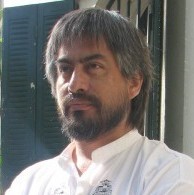 Carlos Zamora
Composer
[email protected]
Carlos Zamora was born in Calama, Chile, He studied music pedagogy at the Universidad de Concepción and composition at the Universidad de Chile. Since 1987 he has composed more than 70 pieces, most of them have been premiered and many are frequently programmed by orchestras and chamber ensembles both in Chile and abroad. Most of his works include musical elements from the Licanantay culture of northern Chile and other pre-Columbian cultures. He is currently based in the city of York, UK where he is a Ph.D. candidate in Composition by composer Thomas Simaku.
Carlos Zamora
Composer
[email protected]
Carlos Zamora was born in Calama, Chile, He studied music pedagogy at the Universidad de Concepción and composition at the Universidad de Chile. Since 1987 he has composed more than 70 pieces, most of them have been premiered and many are frequently programmed by orchestras and chamber ensembles both in Chile and abroad. Most of his works include musical elements from the Licanantay culture of northern Chile and other pre-Columbian cultures. He is currently based in the city of York, UK where he is a Ph.D. candidate in Composition by composer Thomas Simaku.
In the musical art, composers are the first link in the musical chain. We create the music, the performers play it, and the audience listens to it. But, most of the time, performers receive a payment for playing, audience pay for listening to, and composers receive only claps. Despite this, different countries and scenarios offer better opportunities than others in several variables, such as copyrights, the quantity of festival, competitions, even jobs market. Being a composer living abroad, especially in Europe, we can realize how different is received and respected ours work. The aesthetics considerations, in what extent our music follows the new tendencies and whether our music contains either Chilean or Latin-American roots, is not important. In spite of that, some composers have used, more than others, traditional musical elements extracted from several cultures trying to be “Chilean composers”. Nevertheless, we cannot talk about a Chilean creative movement or a recognizable Chilean creative trend. This is because most of the Chilean composers have subscribed European new tendencies instead an own national development.
On my piece called “Flute Quartet Nº1” I show a way in the opposite direction. That is to say, from a sort of “contemporary” spot, I travel in three minutes to the traditional music from the north of Chile, trying to be a recognizable Chilean composer, or at least, a Latin-American one. The questions are, can Chilean composers be “Chilean composers” in musical terms? And, do we want to be recognizable as Chilean composers?

Carlos Zamora
Composer
Carlos Zamora was born in Calama, Chile, He studied music pedagogy at the Universidad de Concepción and composition at the Universidad de Chile. Since 1987 he has composed more than 70 pieces, most of them have been premiered and many are frequently programmed by orchestras and chamber ensembles both in Chile and abroad. Most of his works include musical elements from the Licanantay culture of northern Chile and other pre-Columbian cultures. He is currently based in the city of York, UK where he is a Ph.D. candidate in Composition by composer Thomas Simaku.
 Eileen Karmy
Musicologist
[email protected]
Eileen Karmy is pursuing her PhD in Music at the University of Glasgow on musicians’ working lives in early 20th century Valparaíso. She has a MA in Musicology from Universidad de Chile and a BA in Sociology from Universidad Alberto Hurtado. She has researched and published on Popular Music in Chile and its politics, especially cumbia, tango, and Nueva Canción. She is currently researching on musicians’ organization in Valparaiso, creating the online archive: www.memoriamusicalvalpo.cl
Eileen Karmy
Musicologist
[email protected]
Eileen Karmy is pursuing her PhD in Music at the University of Glasgow on musicians’ working lives in early 20th century Valparaíso. She has a MA in Musicology from Universidad de Chile and a BA in Sociology from Universidad Alberto Hurtado. She has researched and published on Popular Music in Chile and its politics, especially cumbia, tango, and Nueva Canción. She is currently researching on musicians’ organization in Valparaiso, creating the online archive: www.memoriamusicalvalpo.cl
This paper proposes to address musicians as workers to analyse the history of music in a comprehensive manner. This perspective allows to understand the differences between musicians, regarding their working life, genre and gender. It also helps to highlight the relevance of musicians’ organisations in Chilean music history.
Through the case of study of the first musicians’ union created in Chile (1931) and its precedent, the Musicians’ Mutual Aid Society of Valparaíso (1893), this paper will argue that musicians’ organisations had played a pivotal but largely unexplored role in Chilean music history. Musicians had organised in several forms, such as trade unions, societies and guilds, each of them followed different aims, for example, to improve the life and working conditions of its members, or to spread certain music across the country.
Reflecting on why musicians have congregated in different kind of organisations, the aims that they followed, and the sort and status of musicians that joined one or another organisation, this paper will help to shed light on what we can learn today about the history of musicians’ organisations in Chile.

Eileen Karmy
Musicologist
Eileen Karmy is pursuing her PhD in Music at the University of Glasgow on musicians’ working lives in early 20th century Valparaíso. She has a MA in Musicology from Universidad de Chile and a BA in Sociology from Universidad Alberto Hurtado. She has researched and published on Popular Music in Chile and its politics, especially cumbia, tango, and Nueva Canción. She is currently researching on musicians’ organization in Valparaiso, creating the online archive: www.memoriamusicalvalpo.cl
 SIMUC
[email protected]
Produced by the International Society for Chilean Music (SIMUC).
SIMUC
[email protected]
Produced by the International Society for Chilean Music (SIMUC).The SIMUC talked to Chilean musicians in Santiago. We asked them The SIMUC talked to Chilean musicians in Santiago. We asked them How should we call this "erudite", "classical", "academic", "art music", "music of written tradition"?
Musicians on the film: Aliocha Solovera (composer), Luis Orlandini (guitarist), Fernanda Ortega (pianist), Sebastián Errázuriz (composer, conductor), Álvaro Gallegos (journalist, researcher, composer), Francisca Reyes (cellist), Andrés Maupoint (composer), Francisco Silva (composer), Tomás Brantmayer (composer), Nicolás Carrasco (composer, researcher, improviser) and Antonio Carvallo (composer).

SIMUC
Produced by the International Society for Chilean Music (SIMUC).
Directed by Javier Party.
Filmed by Metáfora Films.
With the support of ChileGlobal.
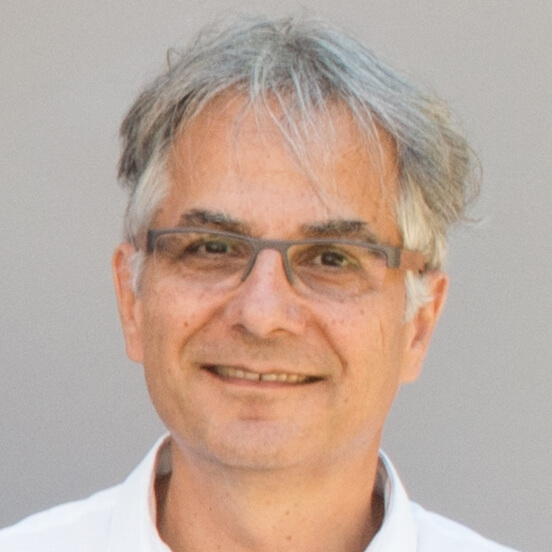 Tasos Zembylas
Cultural Scientist
[email protected]
Tasos Zembylas holds a PhD in Philosophy and since 2003 has been Professor for Cultural Institutions Studies at the University of Music and Performing Arts Vienna. His research specializations lie in the sociology of artistic practices, the epistemics of the creative process, the institutional analysis of art worlds, and public funding of the arts. His recent publications are: (ed.) 2014. Artistic Practices: Social Interactions and Cultural Dynamics. London: Routledge, and (together with Martin Niederauer) 2017. Composing Processes and Artistic Agency: Tacit Knowledge in Composing. London: Routledge.
Tasos Zembylas
Cultural Scientist
[email protected]
Tasos Zembylas holds a PhD in Philosophy and since 2003 has been Professor for Cultural Institutions Studies at the University of Music and Performing Arts Vienna. His research specializations lie in the sociology of artistic practices, the epistemics of the creative process, the institutional analysis of art worlds, and public funding of the arts. His recent publications are: (ed.) 2014. Artistic Practices: Social Interactions and Cultural Dynamics. London: Routledge, and (together with Martin Niederauer) 2017. Composing Processes and Artistic Agency: Tacit Knowledge in Composing. London: Routledge.
Tasos Zembylas und Martin Niederauer (2016). Praktiken des Komponierens. Soziologische, wissenstheoretische und musikwissenschaftliche Perspektiven. Wiesbaden: Springer-VS, ISBN 978-3-658-13507-2.
Tasos Zembylas and Martin Niederauer (2017): Composing Processes and Artistic Agency: Tacit Knowledge in Composing. London: Routledge, ISBN 978-1-138-21549-8.
This monograph resulted from a two-year research process analysing composing processes in actu in art music and shedding new light on the constitutive conditions of creative work in general. The leading questions concern the changing role of various compositional activities such as listening, researching, imagining, trying out, reflecting, noting and correcting during the working process, and their internal dynamics. (What are composers doing when they compose? How do their actions change the meaning of previous action, and how do they prestructure future action?) Further, there is a particular focus on the complex synergy of various propositional and tacit forms of knowledge, material and symbolic artefacts, resources and collaborative arrangements with others. (What enables creative action? What is the role of theoretical knowledge and of corporeal, experiential and sensory knowing-in-action?) Consequently the book chapters develop an understanding of artistic agency and mastery as effects of shared practices and social participation. The findings will be interesting for sociologists and musicologists as well as for other scholars and artists interested in the epistemics of artistic practices.

Tasos Zembylas
Cultural Scientist
Tasos Zembylas holds a PhD in Philosophy and since 2003 has been Professor for Cultural Institutions Studies at the University of Music and Performing Arts Vienna. His research specializations lie in the sociology of artistic practices, the epistemics of the creative process, the institutional analysis of art worlds, and public funding of the arts. His recent publications are: (ed.) 2014. Artistic Practices: Social Interactions and Cultural Dynamics. London: Routledge, and (together with Martin Niederauer) 2017. Composing Processes and Artistic Agency: Tacit Knowledge in Composing. London: Routledge.
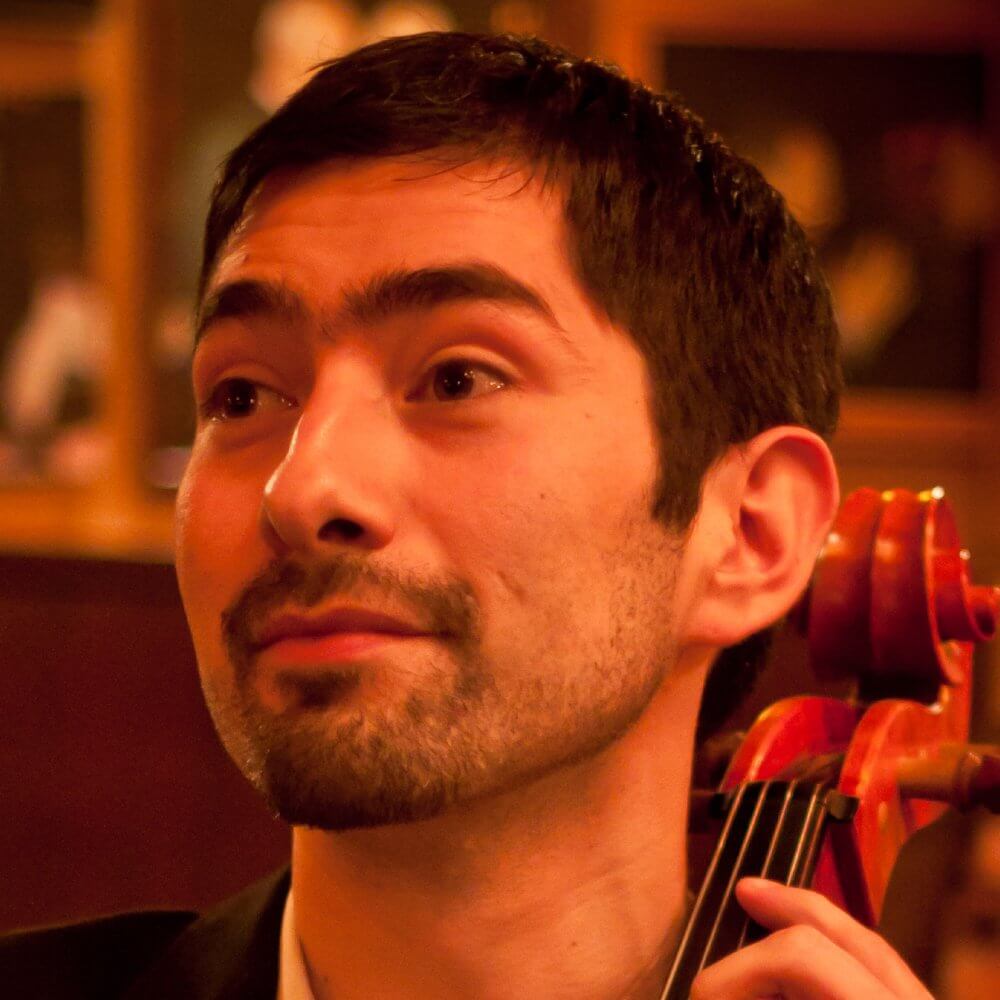 Daygoro Serón
Cellist
[email protected]
Daygoro Serón works as a cellist at the Philharmonie Salzburg, as a cellist and arranger in Patagonien Quartett and as a cello teacher at the Triola Musikinstitut. He studied cello at the Universidad Católica de Chile and at the Universität Mozarteum Salzburg. He is the vice president of the International Society for Chilean Music (SIMUC).
Daygoro Serón
Cellist
[email protected]
Daygoro Serón works as a cellist at the Philharmonie Salzburg, as a cellist and arranger in Patagonien Quartett and as a cello teacher at the Triola Musikinstitut. He studied cello at the Universidad Católica de Chile and at the Universität Mozarteum Salzburg. He is the vice president of the International Society for Chilean Music (SIMUC).
One of SIMUC's endeavors is its ambitious database, in which we are working on a regular basis. In 2016, soon after we started the SIMUC, we inaugurated our database with our list of Chilean Musicians Abroad, which today has more than 200 names.
In the first half of this year (2017) we added a list of Chilean Composers which at present time has more than 150 names.
In the coming months we are going to publish an extensive Catalog of pieces by Chilean composers, a SIMUC Project that was carried out together with Chilean musicologist Christian Spencer and financed by the National Council For The Arts And Culture of Chile.

Daygoro Serón
Cellist
Daygoro Serón works as a cellist at the Philharmonie Salzburg, as a cellist and arranger in Patagonien Quartett and as a cello teacher at the Triola Musikinstitut. He studied cello at the Universidad Católica de Chile and at the Universität Mozarteum Salzburg. He is the vice president of the International Society for Chilean Music (SIMUC).
 SIMUC
[email protected]
SIMUC's International Musicology Conference.
SIMUC
[email protected]
SIMUC's International Musicology Conference.
General discussion on different topics presented during the conference. With Martín Farías, José Manuel Izquierdo, Eileen Karmy, Pablo Palacios, Juan Carlos Poveda, Carlos Zamora and Tasos Zembylas. Moderated by Javier Party.